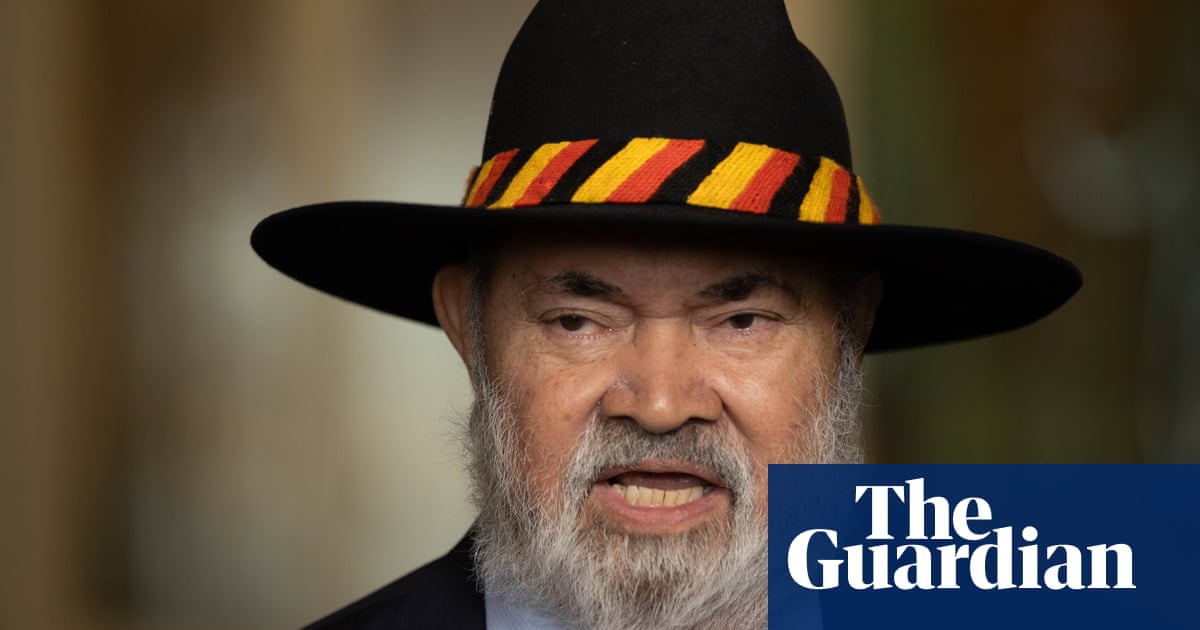FormerLabor senator Patrick Dodsonhas condemned the country’s Aboriginal youth incarceration rates and child removals as an ongoing genocide against First Peoples and an “embarrassing sore” on the nation.
“It’s an assault on the Aboriginal people. I don’t say that lightly [but] if you want to eradicate a people from the landscape, you start taking them away, you start destroying the landscape of their cultural heritage, you attack their children or remove their children,” Dodson said.
“This is a way to get rid of a people.”
Dodson said there was no other word for it than genocide.
“It’s to destroy any semblance of any representation, manifestation in our nation that there’s a unique people in this country who are called the First Peoples,” he said.
Sign up for Guardian Australia’s breaking news email
Indigenous families are over-represented in child-removal statistics. In 2024, more than44% of all children in out of home care were Aboriginalor Torres Strait Islander. In Dodson’s home state of Western Australia, Aboriginal children make up more than60% of all children in care.First Nations children are also 27 timesmore likely to be in detention than non-Indigenous children and young people.
The Yawuru elder, whose traditional country centres around Broome, spoke to Guardian Australia before the release of his Reconciliation Memoirs, an annual event held by Reconciliation Australia in which they produce the memoirs of a longstanding champion of the reconciliation movement.
Often referred to as the “father of reconciliation”, Dodson has tracked these worsening statistics in his decades in public life. He served as a commissioner on the 1989 royal commission into Aboriginal deaths in custody, as chair of both the Central Land Council and the Kimberley Land Council, and as co-chair of the parliamentary inquiry into constitutional recognition, before being nominated for the senate in 2016.
He retired from politics last year due to ill health, but has not given up the campaign, calling on prime minister Anthony Albanese to use his overwhelming victory in the federal election this month to press ahead with a national truth telling commission and a treaty process, despite the failure of the voice referendum in 2023.
Those three priorities – a voice to parliament, national truth-telling, and a Makaratta commission to oversea treaty-making – were outlined in the Uluru Statement from the Heart in 2017.
Albanese haspreviously said he endorses the principles of truth-telling and treaty-makingbut stopped short of committing to establishing a commission.
Dodson said now is the time to revisit the issue – and stressed that doing so would not undermine the referendum result.
“He’s got time. It’s time for us to take stock,” he said.
Sign up toBreaking News Australia
Get the most important news as it breaks
after newsletter promotion
“There are two other destinations. They can all be pursued by way of legislation, but that requires commitment and will not only of the government but of the people.”
He said a national truth-telling process would allow the nation to move away from culture wars and grapple with the history of the land and its contested foundations.
“There’s no hidden traps in the whole thing,” he said. “It’s a facing up to an honest way to deal with the First Peoples of this nation, to deal with a contested history, with a view to trying to come to a common narrative about whom we are as Australians in this modern age.”
Dodson’s Reconciliation Memoirs, written in conjunction with journalist Victoria Laurie, detail his early life growing up in Broome and the loss of both his parents in childhood, followed by his public life which began in the priesthood. It also tackles his disappointment at being unable to take on a greater role in the referendum campaign due to treatment for cancer.The memoirs series has previously featured former senator Fred Cheney, Noongar writer and songwriter Dr Richard Walley, and former head of Reconciliation WA, Carol Innes.
Dodson said that the process of examining his long legacy in public life allowed him to reflect on the unfinished business of reconciliation, in a country that is yet to reckon with the legacy of colonisation and dispossession, and yet to afford First Nations people an equitable seat at the table.
“It’s a great country, but it’s just that the First Peoples are not enjoying a lot of the greatness,” Dodson.
“We should pick up and resolve these issues that are a blight on us as a nation. Our relationship with the First Peoples has not been settled, has not been agreed to between First Peoples and the nation and we’ve got to do that.”
